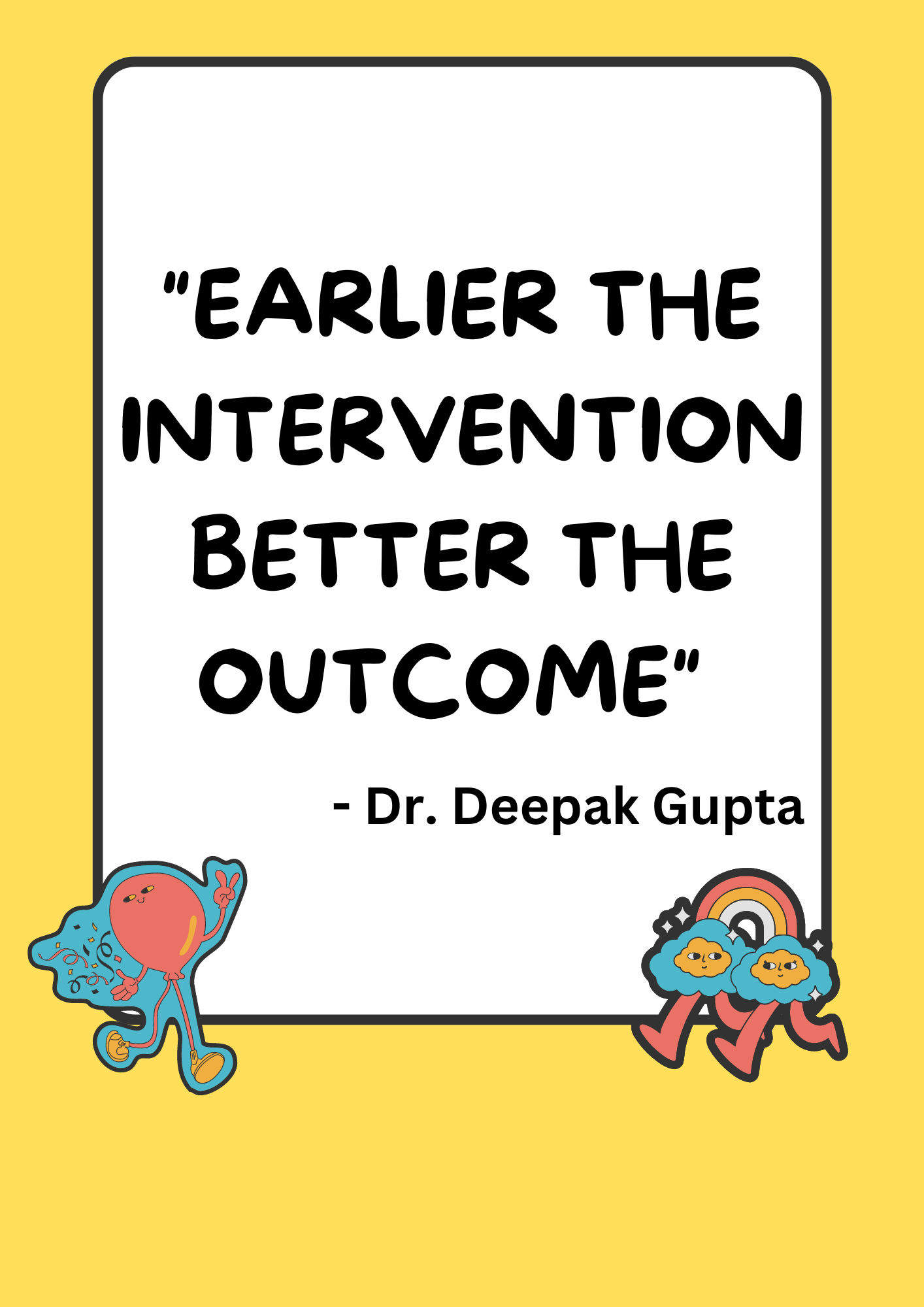
The rate at which humans learn and develop is the maximum in the early years of life. Early Intervention Services are services provided to infants and toddlers who are at risk of developmental delays. These services are intended to identify and meet the developmental needs of children in five areas – communication, social, cognitive, emotional, physical, sensory, and adaptive development.
A firm believer of the ideology of “Earlier the intervention, better the outcome”, the therapists at CCAW not only work with the children but empower families as a whole by giving individualized home plans that are creative, fun, and can be easily implemented by the parents. This ensures that even when the child is at home s/he is receiving the right interventions (or stimulation) at all times thus speeding up the remediating process. (who is it beneficial for – cannot find a research to put in the exact criteria of people)
The goal of OT is to improve everyday skills which allow people to become more independent and participate in a wide range of activities. For children with autism, OT programs often focus on play skills, learning strategies, and self-care.
Assessment:
Assessment includes parental interviews, formal and informal assessments to understand developmental profile of the child with focus on following areas:
Outcomes:
The evaluation will identify any obstacles that prevent the child from participating in any typical day-to-day activities.Based on this evaluation, the therapist creates goals and strategies that will allow the child to work on key skills. It also helps in creating individualized family plans to address needs of the child and the family.
Special education involves individually planned and systematically monitored arrangement of teaching procedures, materials and accessible settings for each child. It involves providing students with identified disabilities, specialized instruction designed to meet their unique learning needs, giving them the opportunity to develop to their fullest potential.
At CCAW, Special Educators actively involve parents in developing Individualised Education to empower them to work with their child at home.
It is beneficial for children with following concerns
How it works:
Special Educators assess the functional level of the child, focussing on the Pre attending skills, social skills, play skills, language and communication.
After assessment, an individualized education plan is made involving parents.
Different methodologies are used like
The choice of the methods depends on the child needs and the sessions are customizes accordingly.
Speech and language therapy include treatment, support and care for children who face challenges in speech, communication and language. At CCAW, along with individual sessions, the therapist involves the parents to create customized home plans to support the overall progress of the child.
It is beneficial for children facing:
These problems are often exhibited in children with Speech Disorder, Language disorder, delay in speech, Autism Spectrum Disorder.
Targeted Areas:
Functional Assessments play a crucial role in assessing a child’s current performance across various domains like personal, academic, social, communication, and recreational in accordance with the developmental milestones. It helps the therapists and the parents understand the current level of functionality of their child within these domains and helps in the development of goals.
At CCAW, professionals trained to conduct these assessments sit at length with the parents and the child to observe the child in various skills and take information from the parents along the same lines. This helps the professionals bridge the gap between the need of the parents and the need of the child at a given point in time and assists in the holistic development of goals for the child across various areas.
To increase the rate at which these goals can be achieved, the therapists at CCAW also offer elaborate home plans for 3 months that consist of activities that can be conducted by parents at home on a daily basis. This enables the parents to become co-therapist thereby getting empowered in bringing about changes in their child’s life. To help parents carry out the plan smoothly, constant hand holding is provided by the CCAW team through monthly calls.
Designed and Developed by Kreative Captains Pvt. Ltd